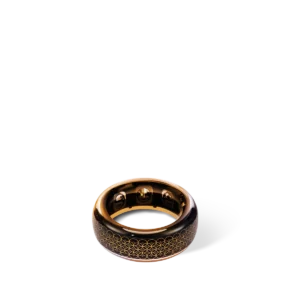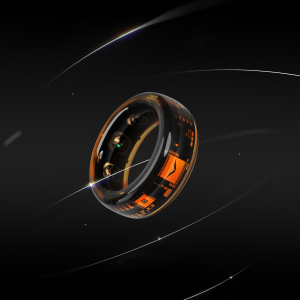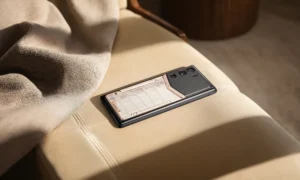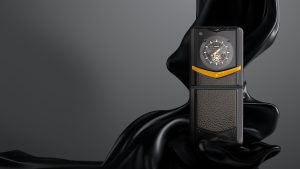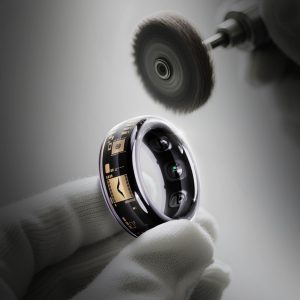The technology world pauses for a collective intake of breath. Congratulations on the Pixel 10! Google has, once again, drawn back the curtain to reveal its latest masterpiece of computational wizardry: the Pixel 10. And we, at Vertu, are the first to applaud. To deny the brilliance of the Pixel 10 would be to deny the relentless, beautiful march of progress itself. It is a marvel, a testament to what is possible when lines of code are orchestrated into a symphony of artificial intelligence.
We've seen the demonstrations, the almost clairvoyant capabilities of its new software. The Camera Coach, an AI sensei that doesn't just capture a moment but actively guides you to create a better one, offering compositional suggestions born from a million data points. The Magic Cue, a proactive assistant that anticipates your needs, pulling flight details from an email into a text message before you’ve even thought to look for them. The new Tensor G5 chip, forged for the first time in the hallowed halls of TSMC, promises a new echelon of speed and efficiency. It is, by all accounts, the smartest smartphone ever conceived. It is designed to solve problems, to streamline existence, to render the friction of daily life into a seamless digital glide. It is the logical endpoint of technology as a tool—perfectly efficient, endlessly helpful, and universally accessible.
Google has built a spectacular instrument of logic. And for that, they deserve every accolade.
But as we stand back and admire this monument to silicon and software, a profound question begins to surface, quietly at first, then with insistent clarity: Is “smart” the only metric of value? Is the absolute zenith of our ambition for the most personal object in our lives simply to make it a more perfect servant?
When did we collectively decide that the device we hold in our hands, the portal through which we experience so much of our world, should be defined solely by its ability to think for us, rather than its capacity to make us feel something?
This is where the conversation must evolve. It must pivot from the language of processing power to the vocabulary of presence, from the cold perfection of the algorithm to the warm, flawed, and infinitely more meaningful touch of a human hand.
This is where we must begin to talk about art.
The Unspoken Compromise of the Assembly Line
Before we delve into the nature of art, we must first understand the nature of the tool. The Google Pixel 10, like every mass-market smartphone, is a triumph of industrial scale. It is born on an assembly line, a miracle of robotics and precision manufacturing where millions of identical units are produced with flawless consistency. This process is necessary to place such advanced technology into the hands of millions. It is a democratic ideal realized through engineering.
Yet, this very perfection carries an inherent compromise: homogeneity. In the pursuit of flawless replication, the individual mark of the creator is erased. The unique character that comes from a human touch is sacrificed for the sake of uniformity. The materials, while functional and sleek—gleaming glass, polished aluminum—are chosen for their suitability for mass production. They are cold to the touch, designed to be encased in plastic, their true identity hidden away. They are anonymous.
The experience, too, becomes algorithmic. Your phone learns your habits, predicts your desires, and serves you solutions. It is an incredible convenience, but it is a passive relationship. The device serves, and you accept. Over time, the magic of the technology fades into the utility of an appliance. It becomes another screen in a world of screens, its soul residing not within its physical form, but in the distant, humming server farms that power its intelligence.
We believe there is another way. A path that chooses not to reject technology, but to imbue it with a soul. A philosophy where the object itself is as significant as the functions it performs.
The Vertu Proposition: An Overture to Artistry
Art, in its purest form, is the deliberate expression of human creativity and skill in a physical medium. It is not about efficiency; it is about emotion. It is not about problem-solving; it is about creating a connection. A Vertu is not conceived as a tool to be mass-produced, but as a piece of art to be individually created. This philosophy is not an abstract concept; it is forged into every facet of our devices.
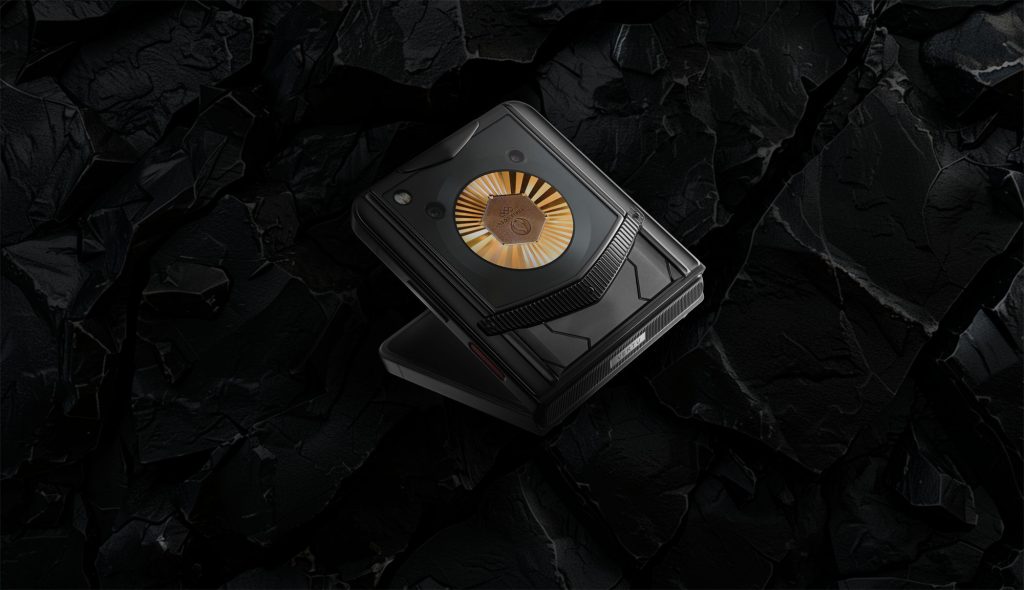
The Canvas: Materials of Sensation and Permanence
The conversation about a Vertu begins where the conversation about a mass-market phone ends: with the materials. We do not select components based on cost-efficiency or ease of manufacturing. We curate elements from the earth that possess their own stories, their own intrinsic character and beauty.
While the screen of a standard smartphone is a fragile pane of hardened glass, a Vertu screen is cut from a single, solid piece of sapphire crystal. Over 200 carats of it, grown over weeks in a furnace at 2000°C. It is a material whose clarity is absolute and whose resilience is second only to diamond. To touch it is not to interact with a disposable surface, but to feel the cool, immutable permanence of a gemstone. It does not just display light; it refracts it, playing with the ambient world in a way that glass never can. It is a window that feels as precious as the world it reveals.
The chassis of a Pixel is aluminum; strong, light, and ubiquitous. The frame of a Vertu is forged from Grade 5 Titanium. This is the same alloy trusted in the aerospace industry for its unparalleled strength-to-weight ratio. But its appeal is more than just durability. Titanium has a unique thermal conductivity that makes it feel warm to the touch, almost organic. It is hypoallergenic, resisting the oils of the hand with a quiet nobility. Holding it, you feel a reassuring, substantial heft that speaks not of fragility, but of enduring presence. It is the metal of titans, crafted for the human hand.
And then there is the embrace of leather. Not a synthetic substitute, but the finest hides, sourced from centuries-old tanneries in France and Italy that supply the world’s most revered luxury houses. Each piece is chosen for its grain, its texture, its unique imperfections that tell the story of a life lived. As you hold it, it doesn’t just provide grip; it provides a tactile dialogue. Over years of use, it will not degrade, but develop a rich patina—a unique map of your journey, your touch, your life, burnished into its very surface. Can an algorithm offer such a personal history?
These are not mere materials. They are the canvas upon which our art is built. They are a statement that the physical form of technology matters, that it should engage not just our minds, but our senses.
The Hand of the Creator: The Soul of Craftsmanship
A Google Pixel 10 is assembled by a symphony of precise, unfeeling robotic arms. A Vertu is brought to life by the hands of a single master craftsman in a quiet workshop in Hampshire, England.
This is not a romantic affectation; it is the very core of our identity. The “one artisan, one phone” principle ensures that every device is a singular creation, imbued with the focus, skill, and passion of its maker. This process is painstaking, methodical, and deliberately inefficient. Our craftsmen, some of whom have honed their skills over decades in the world of fine watchmaking, spend hundreds of hours on a single device.
They meticulously align every microscopic screw, polish every titanium edge to a mirror finish, and hand-stitch every piece of leather. They work with a jeweler’s loupe and a surgeon’s precision. This is a world away from the production line. It is a relationship between creator and creation. And when their work is complete, when the device passes a litany of quality checks that would be unfeasible at scale, they do one final thing: they engrave their personal signature on the inside of the SIM card tray.
This small, hidden mark is a profound statement. It is a guarantee of authenticity. It is a seal of human accountability. It signifies that your Vertu is not an anonymous unit from a batch of millions; it is a unique masterpiece, bearing the legacy of the hands that gave it life. This is the difference between a product that is manufactured and an object that is authored. It is the soul, inscribed in metal.
The Human Connection: Service Beyond the Algorithm
Perhaps the most potent illustration of our philosophy lies in the contrast between artificial intelligence and genuine human understanding. Google’s Magic Cue is a brilliant piece of predictive software. It uses data to anticipate a need and offer a solution. It is reactive, logical, and incredibly smart.
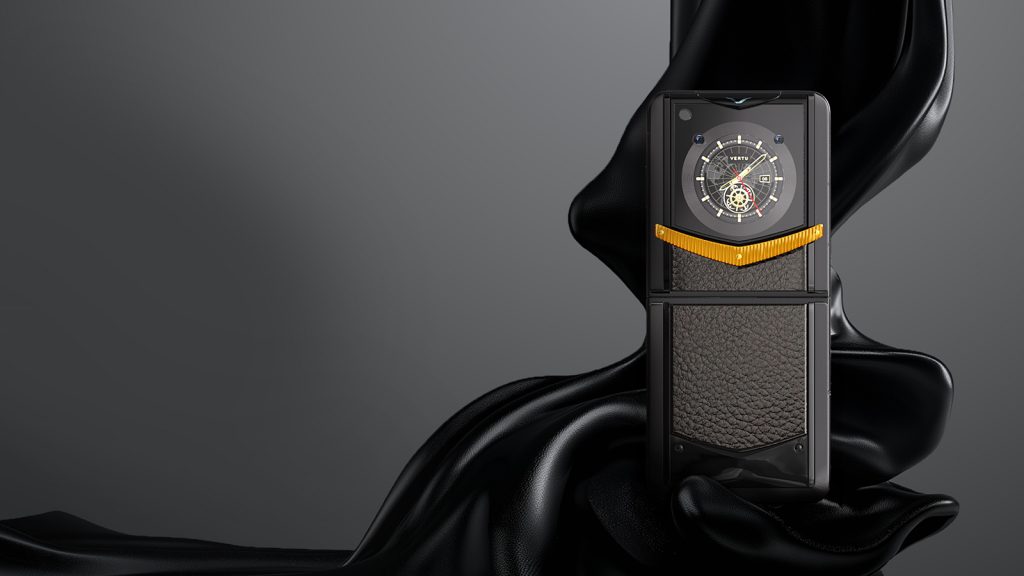
Vertu offers something else entirely: The Concierge.
Accessed by a dedicated ruby key on the side of your phone, the Concierge is not an algorithm. It is a connection to a real person, a member of an elite team of lifestyle managers located in centers of excellence around the world. They are there for you 24/7, ready to assist with any request, no matter how simple or complex.
The Pixel 10's AI can help you book a table at a restaurant. Your Vertu Concierge can secure you a table at a restaurant that has been fully booked for months, because they have a personal relationship with the maître d'. They remember that you prefer a corner booth, that your partner has a gluten allergy, and that you like to celebrate your anniversary there.
The Pixel 10 can surface your flight details. Your Concierge can re-route your entire multi-leg journey at a moment's notice when your flight is cancelled, secure you a room at the best hotel, and arrange for a car to be waiting, all while you are enjoying a coffee in the lounge. They don’t just process data; they understand context, nuance, and desire.
They can source a rare first-edition book, arrange a private viewing at an art gallery after hours, or secure tickets to a sold-out opera. Their currency is not data, but relationships, expertise, and an unwavering commitment to making the impossible possible. This is the ultimate luxury: not an intelligence that serves your phone, but a human connection that serves your life. It is the difference between a device that answers your questions and a service that fulfills your dreams.
The Choice: A Tool or a Treasure?
And so we return to where we began. The Google Pixel 10 is, without question, a triumph. It represents the peak of what a smartphone can be when its purpose is to be the ultimate digital tool—efficient, intelligent, and seamlessly integrated into the fabric of modern life. It is a remarkable achievement, and we salute it.
But it also illuminates a choice that we must all make about the role of technology in our lives.
Do we want objects of pure utility, their forms dictated by the necessities of mass production and their experiences governed by predictive algorithms? Or do we seek something more? Do we crave objects that carry a story, that delight our senses, that connect us to a legacy of human skill, and that offer a bridge not to more data, but to deeper, more meaningful human experiences?
A Vertu is not a competitor to the Pixel 10. We are not playing the same game. While one seeks to perfect the digital world, we seek to enrich the physical one. While one is an ephemeral tool, designed to be replaced in a year or two, the other is an enduring work of art, crafted from materials that will last a lifetime.
It is a testament to our belief that true luxury is not about having the latest specs, but about possessing an object of timeless beauty and unparalleled personal service. It’s about owning something that feels Just Different.
So, congratulations, Google. You have perfected the intelligent machine. Now, allow us to reintroduce you to the soul.

